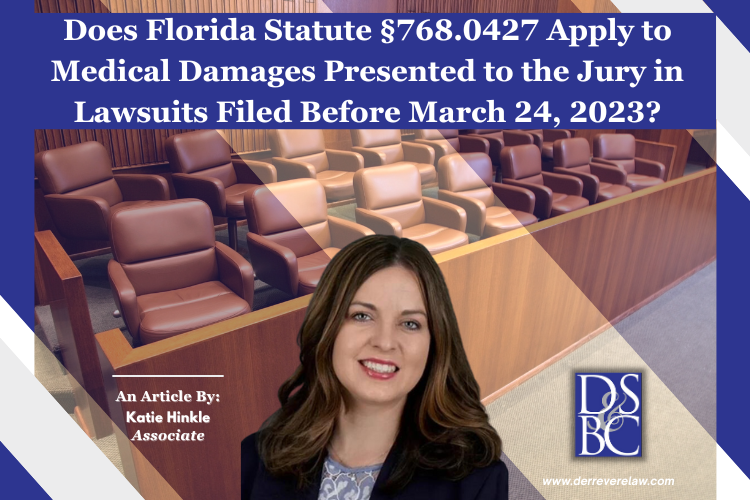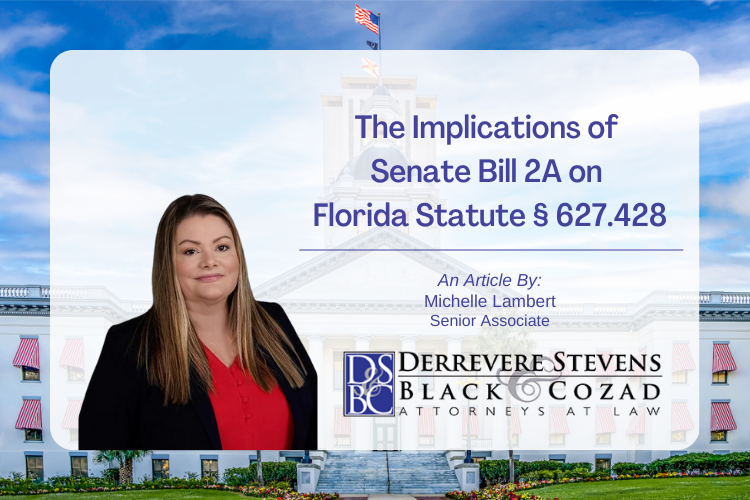Miya’s Law Advances Through the Florida Legislature

A bill is advancing through the Florida Legislature which proposes to place onerous requirements on apartment complex landlords to protect tenants from the threat of violence posed by employees with criminal histories.
Senate Bill 898/House Bill 577, widely known as “Miya’s Law,” was proposed following the murder of a Valencia College student, Miya Marcano, who was found deceased after she went missing from her apartment complex in Orlando in September 2021. Marcano is believed to have been murdered by a maintenance worker who had a violent criminal history and a master key to her apartment. Marcano’s family and her estate have filed a lawsuit against the apartment complex and management company alleging premises liability negligence.
The bill proposes to enact Florida Statute §83.515, which would require apartment complex landlords to conduct nationwide background checks on all employees as a condition of employment. The law permits, but does not require, landlords to deny employment to anyone who has been convicted or entered a plea to a felony or misdemeanor offense “involving disregard for the safety of others” or a violent offense.
The bill further proposes an amendment to Florida Statute §83.53(2), which would expand the “reasonable notice” period for a landlord to enter a tenant’s unit for repairs from 12 hours to 24 hours.
Finally, the bill proposes to add subsection (5) to the existing Florida Statute §509.211, which would require landlords to maintain a log accounting for the issuance and return of keys to tenants’ units and to establish a system regulating the storage and issuance of keys. Landlords would be required to provide proof of compliance with this statute during annual inspections by the Division of Hotels and Restaurants of the Department of Business and Professional Regulation.
The bill could potentially impact a landlord’s civil liability for the intentional criminal acts of its employee. Generally, for a landlord to be liable for the criminal acts of third parties on its premises, the risk of harm must be “reasonably foreseeable.” See Hendry v. Zelaya, 841 So.2d 572 (Fla. 3d DCA 2003). By requiring landlords to conduct extensive, nationwide background checks on all prospective employees, a question arises of whether the bill potentially creates a presumption that a landlord who hires someone with a violent criminal history knew or should have known that person had a propensity for violence and posed a reasonably foreseeable risk of harm to tenants. The bill aims to increase tenant safety and security in apartment complexes by placing responsibility on landlords in vetting employees and tracking those who have access to tenant units. However, the bill offers little guidance on how landlords are to obtain accurate criminal history checks on prospective employees. The bill also does not define “offenses involving disregard for the safety of others” and does not offer a comprehensive list of which offenses are considered “violent,” nor does it offer guidance on how a landlord should evaluate out-of-state convictions, under the laws of different jurisdictions, to determine whether they are offenses which would trigger the provisions of this bill.
The bill passed unanimously in the Senate on March 2, 2022 and is currently on the House floor for its final hearing. Should it pass scrutiny in the House, it will proceed to the Governor’s desk for signature or veto. Should the Governor sign the bill into law, it will take effect as early as July 1, 2022.



